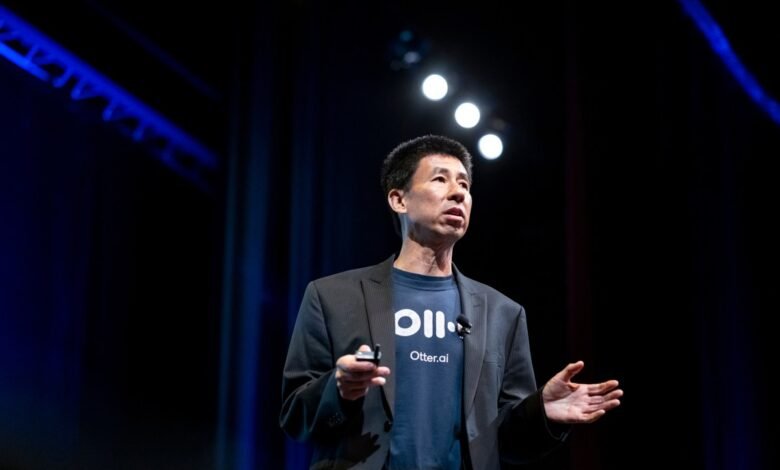Otter.ai’s CEO Aims Beyond Meeting Transcription

▼ Summary
– Otter.ai is transitioning from a meeting notetaker to a corporate knowledge base with new enterprise tools to centralize meeting data and integrate it into workflows.
– The new product suite includes an API for custom integrations, an MCP server for connecting to external AI models, and an AI agent for searching meeting notes and presentations.
– CEO Sam Liang believes this evolution will help companies scale growth, reduce inefficiencies from information silos, and drive measurable business value by sharing nonconfidential information broadly.
– Otter faces challenges including privacy concerns over recording pre/post-meeting chatter and a class-action lawsuit alleging unauthorized recording and data use for training.
– Liang argues that enabling AI access to meeting information is essential for the AI revolution, positioning Otter as part of a broader industry trend despite legal and privacy issues.
Sam Liang, the CEO of Otter.ai, envisions a future where his company does far more than just transcribe meetings. He is steering the platform toward becoming an indispensable corporate knowledge hub, and a fresh lineup of enterprise tools unveiled this week marks a significant stride in that direction. The newly introduced suite is engineered to channel meeting-derived data into a unified repository, enabling businesses to weave conversational insights directly into their operational workflows and extract greater value from every recorded discussion.
This enterprise-focused package includes an API for crafting tailored integrations with systems such as Jira and HubSpot, an MCP server that links Otter data with external AI models, and a new AI agent capable of scouring a company’s meeting notes and presentations. Liang describes this shift as Otter’s next evolutionary phase, moving beyond simple note-taking to establishing a comprehensive corporate meeting knowledge base. He emphasizes that this creates a systematic record of conversations, helping organizations scale their growth and deliver tangible business outcomes.
When Otter launched in 2016, only a few companies specialized in meeting transcription, a stark contrast to the crowded field of today. The AI surge that began in 2022 sparked a wave of new entrants like Granola and Circleback, while established players such as Fireflies also gained renewed attention. Liang believes Otter’s latest transition clearly differentiates it from competitors, positioning it in a category of its own.
Liang points out that meetings often serve as the primary repository for a company’s collective knowledge, whether it’s details from a sales call or strategic marketing discussions. However, when these notes remain scattered across different teams, their potential impact is limited. He identifies information silos as a major source of inefficiency, where one team remains unaware of another’s updated plans. Otter’s system is designed to promote broad sharing of non-confidential information through permission settings, keeping everyone aligned.
Users retain control over which meetings enter the company-wide knowledge base, with options to restrict access for recordings containing sensitive material. Still, employee and data privacy remain important considerations. Even in meetings on neutral topics, Otter’s transcriptions capture casual pre- and post-meeting chatter, which might include private comments or gossip not intended for wider distribution.
Otter also faces a class-action lawsuit filed in August, alleging the company recorded private conversations without user consent and utilized that data for training its transcription models. While Liang refrains from commenting directly on the litigation, he notes that the issue is not unique to Otter. He maintains that expanding AI’s role in meetings is a necessary step for progress, asserting that the company is on the right side of history in advancing the AI revolution.
(Source: TechCrunch)